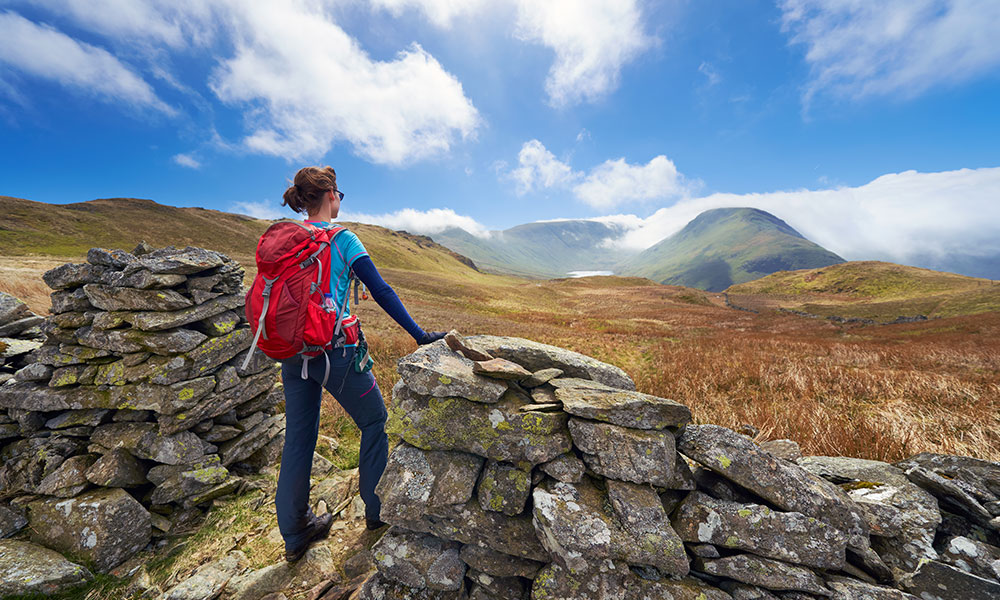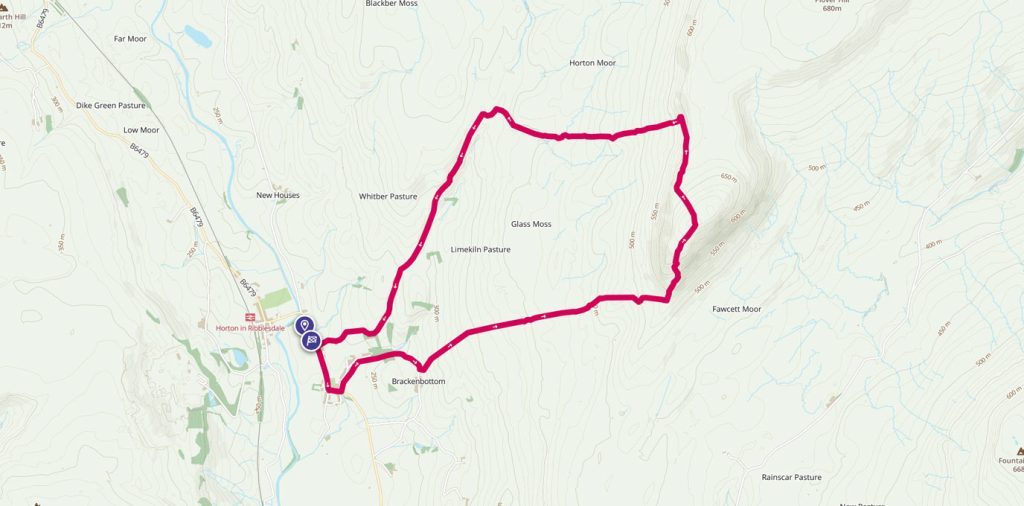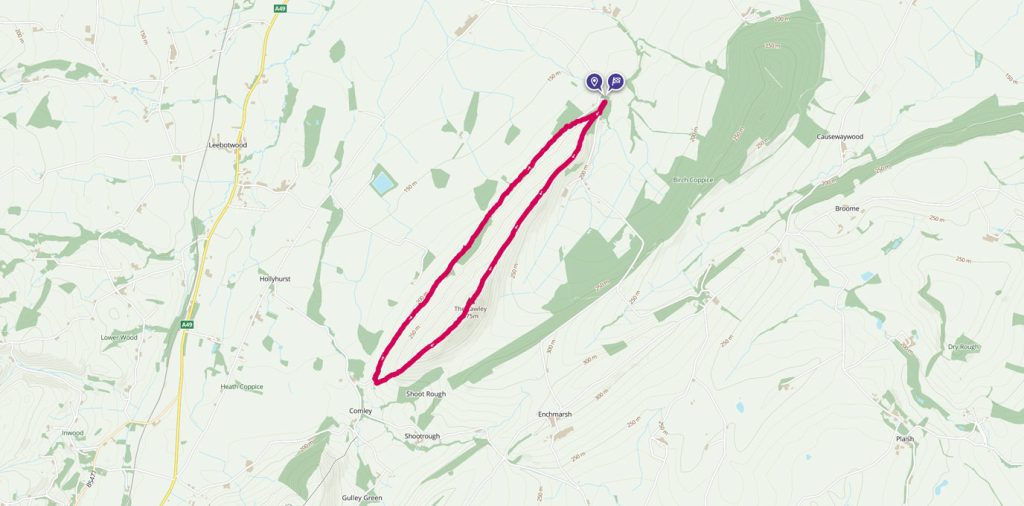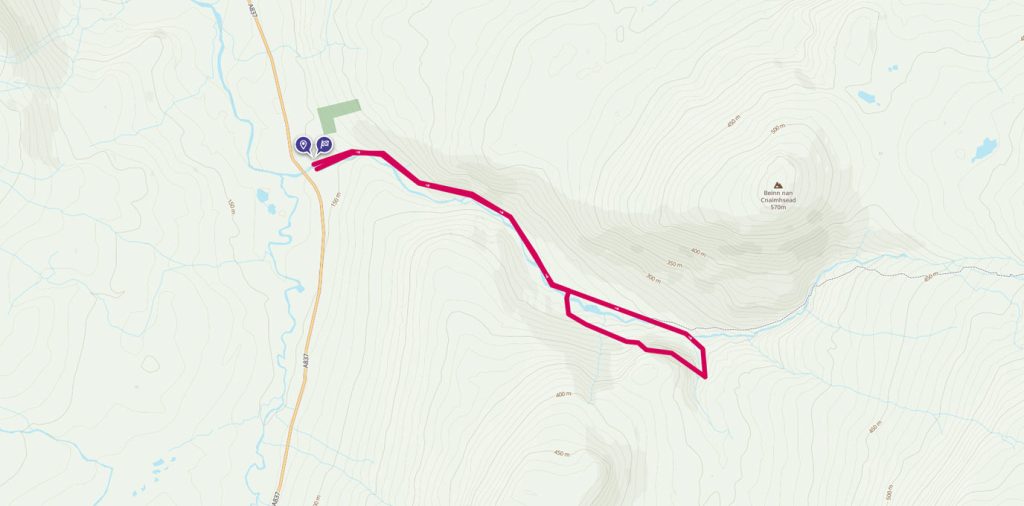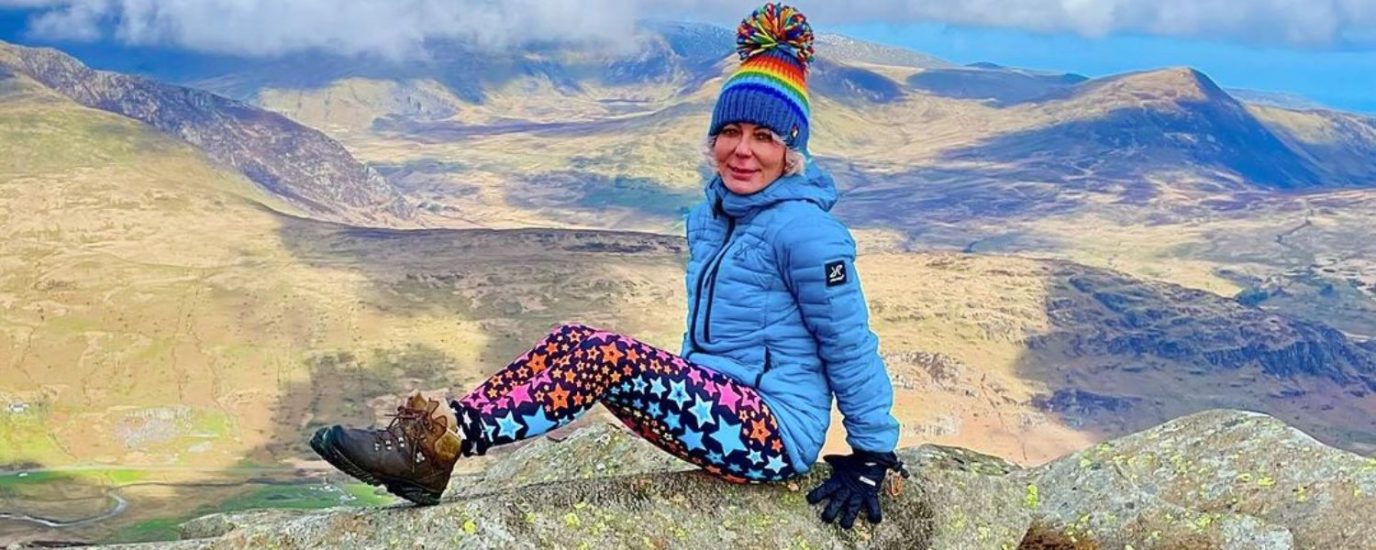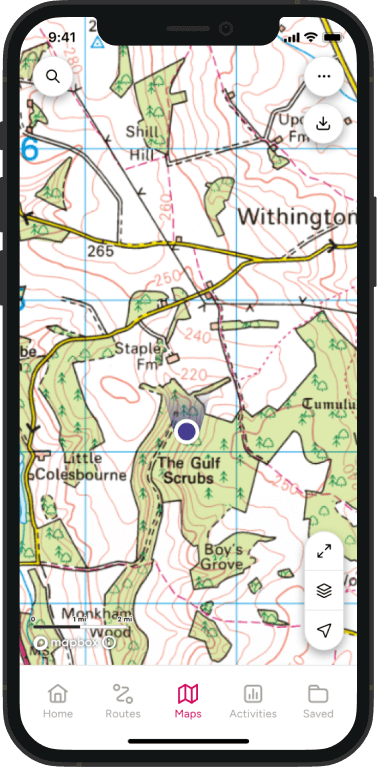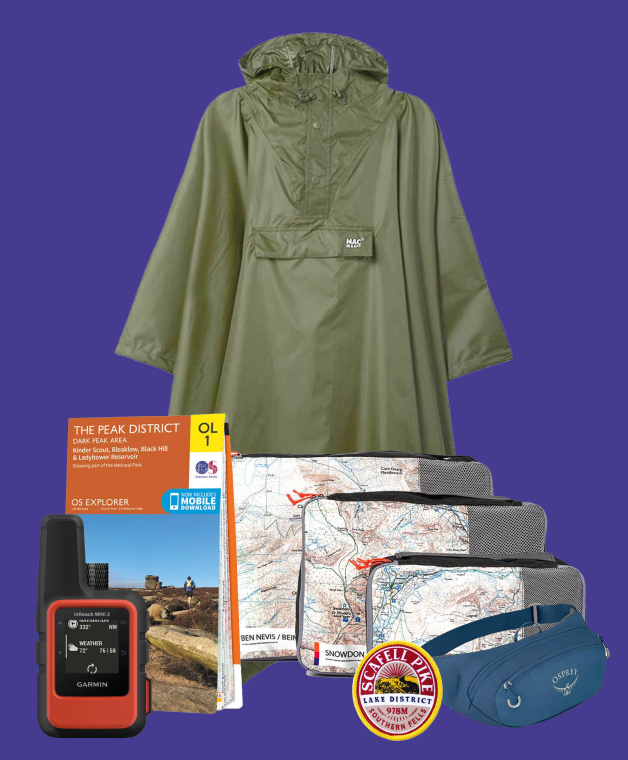A complete guide to hiking for beginners
Are you thinking about trying hiking but you’re not sure where to start? Hiking can feel intimidating! In this post you will find everything you need to know about hiking for beginners in the UK. We will look at hiking safety, hiking fitness and essential gear for beginners to hiking. We will also share some great beginner hiking routes for you to plan fun days to get outside in the mountains, hills and coastlines of Great Britain.
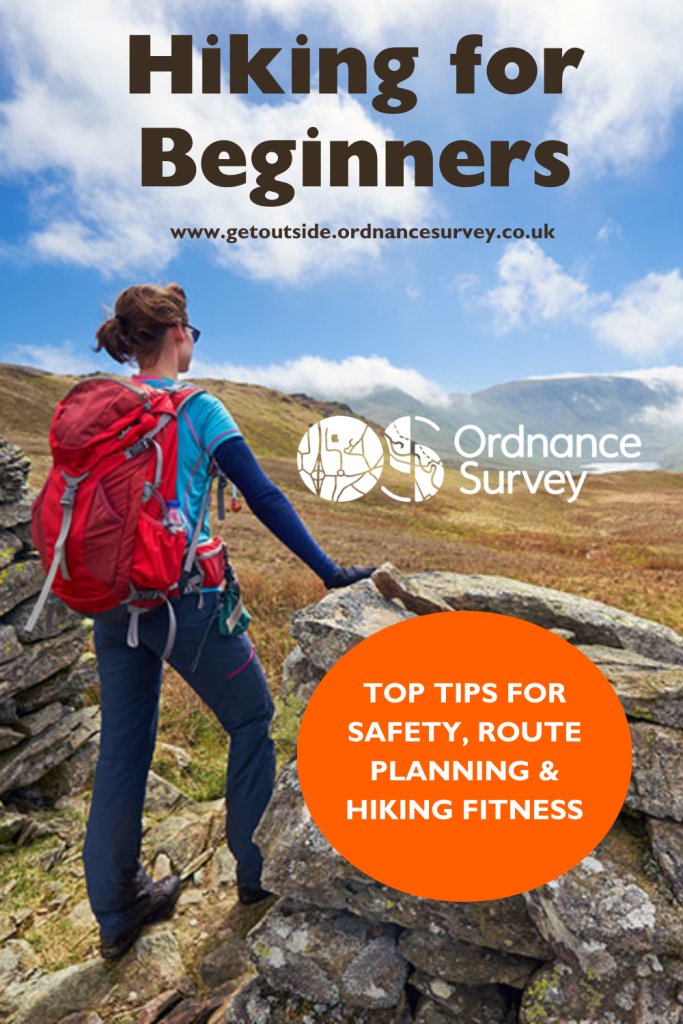
Here are some common concerns people have when thinking about starting hiking:
- Am I fit enough to start hiking?
- What if I get lost on a hike?
- How do I know where to park and start walking?
- What do I need to bring with me?
- Is it safe to take kids on hikes?
All of these genuine concerns about hiking will be answered below in our beginners guide.
What is Hiking? (Isn’t it just going on a long walk?)
Hiking is the term for a long and often fairly vigorous walk in the countryside. It’s a term that has been growing hugely in popularity in the UK. You can see from the Google Trends chart below the huge growth in hiking. A simple distinction between hiking and walking would be whether or not you need to take supplies with you because it’s longer than an hour and involves more effort. For a hike you will definitely need to carry a few essential items in a back pack.
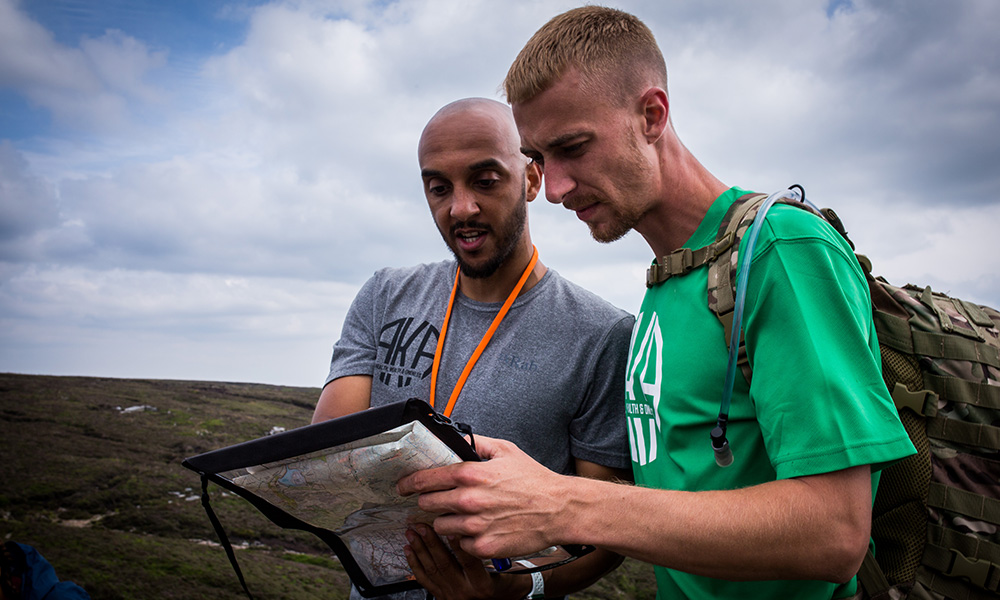
In the past ‘hiking’ has been thought of as a purely American term for ‘going on a walk in the country’. In the UK we would have historically used hiking to mean something far more challenging. Many British people prefer the term hillwalking or rambling for a countryside walk. With the popularity of hillwalking and rambling growing in the UK most people now use the word hiking as a catch all for a longer more strenuous walk, even if not in the mountains.
Do I need to learn to use a compass and read a map to go hiking?
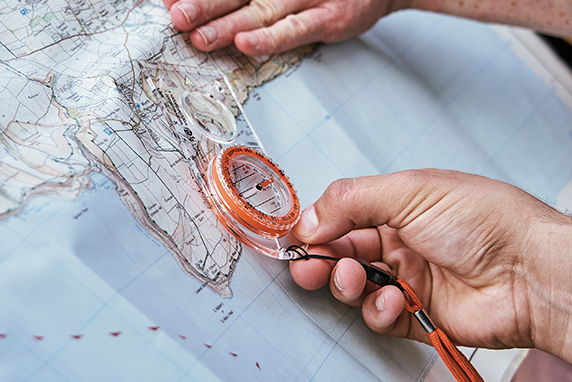
Getting lost out in the mountains or in remote areas is something you need to take seriously. Check that at least one of you and ideally more, has decent navigation skills. If you are planning walks into the mountains this is essential as the weather can change quickly leading to a loss in visibility of the path ahead.
Do you know how to navigate in low visibility conditions?
Ask the group you are hiking with about their experience, where they have walked before and in what conditions. Do they know how to use a compass and map?
If you are planning on hiking on your own or you are the leader of your group then it’s important that you know how to read a map and use a compass. You should also take a smart phone with a mapping app downloaded. OS Maps is the best mapping app for hiking in the UK – you can find out more here – OS Maps.
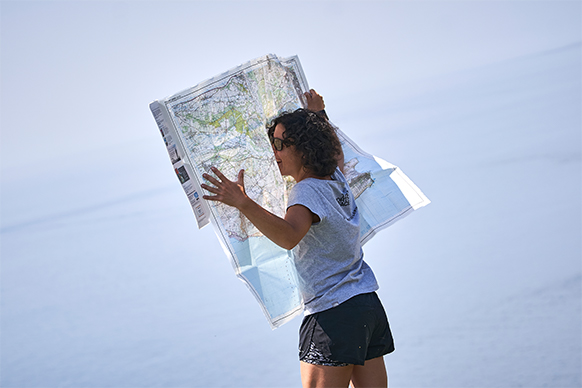
Hiking for Beginners Guide to Map Reading
Ordnance Survey are the UK’s experts when it comes to maps and map reading, so take a look at these useful guides including video tutorials to get you started. Lots of people on long hikes into the countryside and mountains carry a compass but actually don’t know how to use one. Practice on local short walks, watch youtube videos or take a course before you go anywhere remote (especially if hiking solo) so you have a basic understanding of how to use a compass.
What if I get lost or injured on a hike?
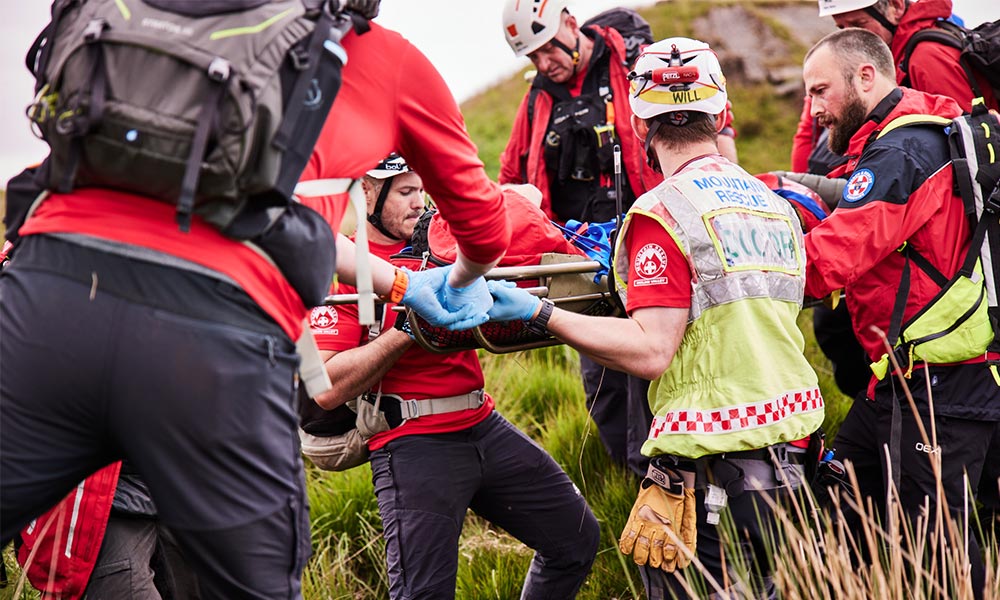
If you or someone in your group becomes lost or injured while hiking, contact Mountain Rescue. Their volunteers are ready to assist 24/7, every day of the year. Dial 999, request the Police, and then ask for Mountain Rescue. Always inform someone of your hike plans, carry an emergency kit, and have a charged phone with emergency numbers. If you find you have no phone signal you might find if you or some of your party gain some height you will get a better signal.
What should I plan ahead for on my first hiking adventure?
As a beginner to hiking there are lots of things you need to think about before you get in your car and drive to that wonderful location you have spotted on Instagram.
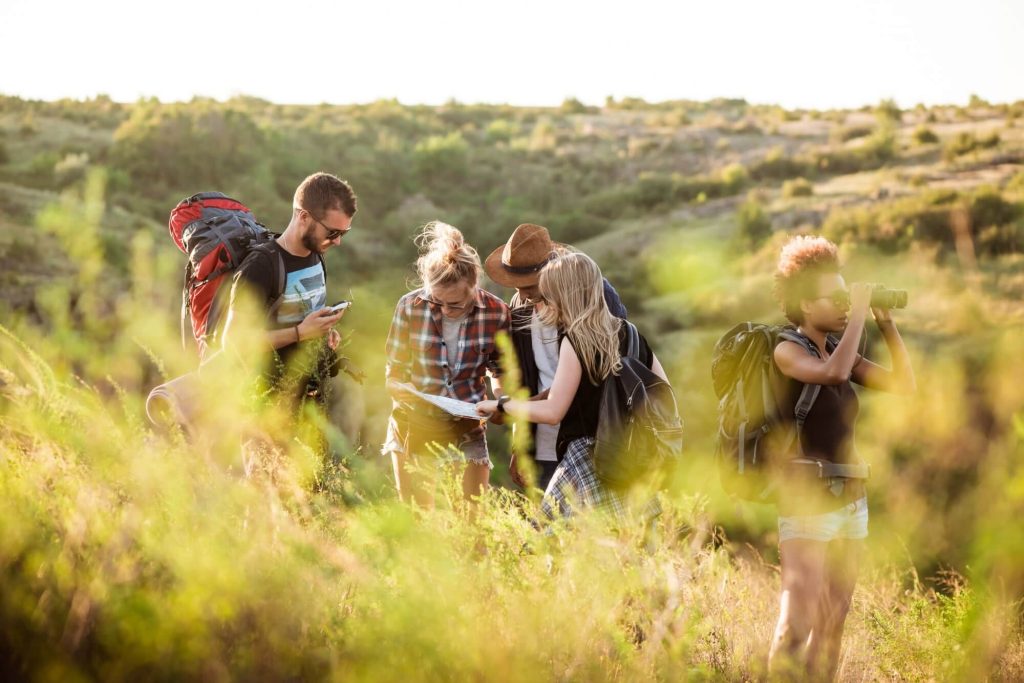
You’re reading this beginners guide to hiking so that is a very good start! Many mountain rescues involve people who did not plan ahead for their day out hiking. Get mentally and physically organised for your first hiking adventure by planning ahead.
Below we have listed some things you need to think about before heading out on your first hike.
How fit do I need to be to start hiking?
If you’re not sure how you will feel walking long distances and up and down inclines it makes sense to build up to a full days hiking in hills and mountains slowly over a few months. If you get out of breath walking up a few flights of stairs then you should definitely not try anything overly ambitious for your first hike.
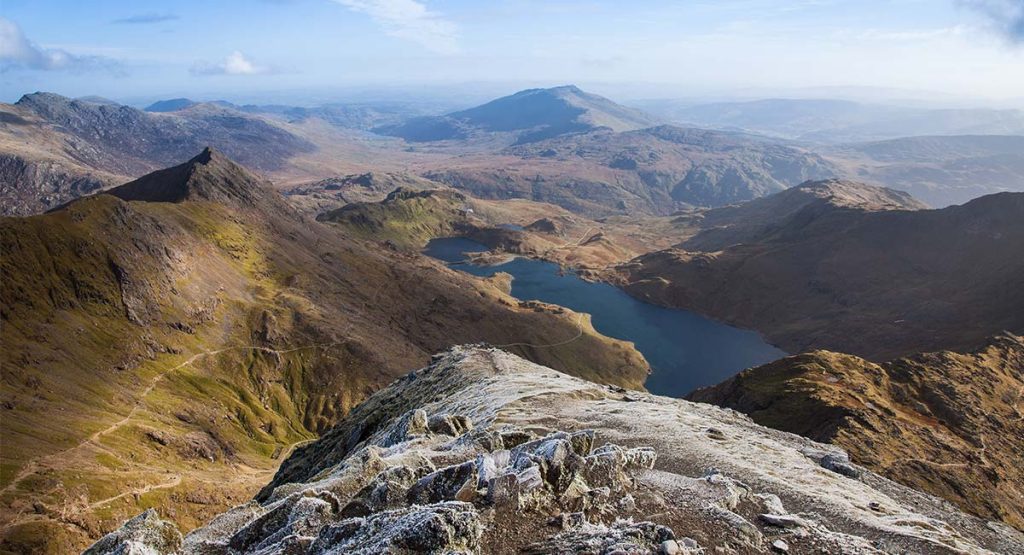
A 5 mile hike over flat terrain is a very different prospect to a 5 mile hike in a hilly or mountainous region. Often people underestimate how difficult walking up and down a steep hill can be. Begin gradually with a few small hills and resist the peer pressure to embark on a lengthy hike if you’re uncertain about it. make sure you test out your ability to climb over stiles too as there will usually be a few on any hiking route in the countryside.
When hiking in a group, it’s important to move at the pace of the slowest member. It’s not only unfair to leave slower hikers behind, but it can also be dangerous to separate. If you plan to bring children or individuals who may not be as physically fit, it’s crucial to factor in additional time for the hike.
Is it safe to go hiking with children?
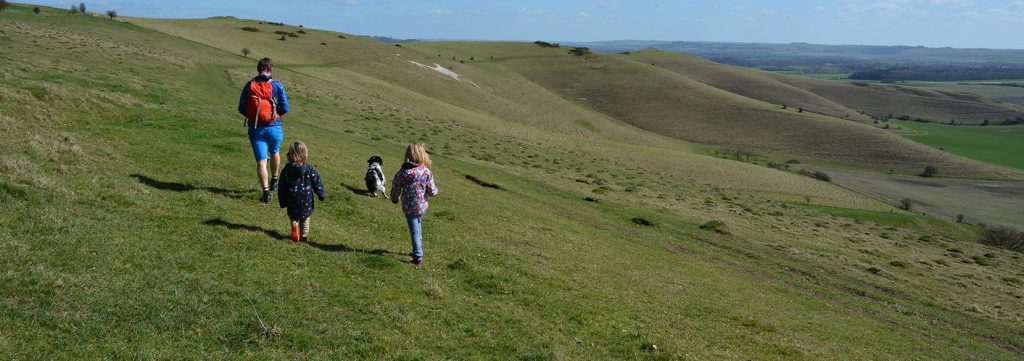
Yes, you should definitely head out with your kids on hiking adventures. As with adult fitness, build up slowly to see how they cope with progressively longer hikes. Starting by taking your kids on a hike up Snowdon might be a little ambitious, look for smaller beginner walks for kids and follow some family adventurers on social media to get tips and advice on hiking with kids.
Introducing children to the outdoors can never begin too early. Make sure to choose a route that matches your child’s capabilities and equip them with appropriate clothing and footwear to maximize their enjoyment.
How to start planning a hiking route
Online mapping tools like OS Maps are the best way to start planning your route. You can use them to find recommended routes from reliable groups of professional hikers and most include a step by step route description. The free version will allow you to find routes, the paid for version lets you print off maps and use topographical mapping which is best for hiking.
How long will the hike take me?
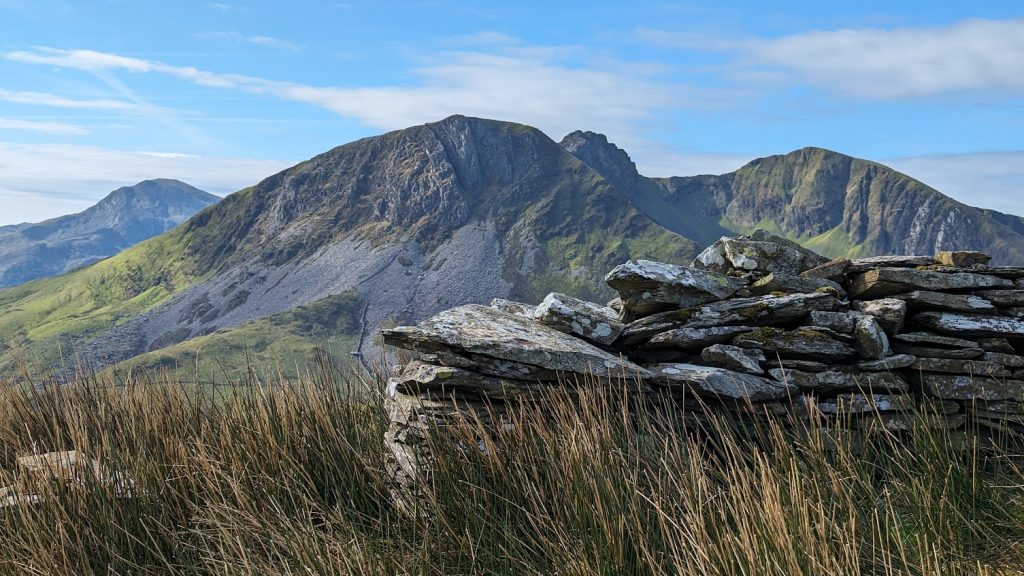
As a beginner hiker, timing is crucial to avoid finding yourself hiking in the dark or becoming overly exhausted. It’s important to estimate how long the hike will take before setting out. The OS Maps Route Guides provide time estimates for routes, but these do not account for breaks, which are often overlooked.
OS Maps incorporates Naismith’s Rule to adjust for additional time needed for ascents and difficult terrain. Determining your pace can be challenging, as it greatly depends on your fitness level, the slope, and the terrain type. It’s common to slow down during the final hour of a walk. If there’s any concern about returning before nightfall, it’s wise to plan a shorter route or begin earlier in the day.
Timing
Factor in time for taking breaks when planning your hike, no mapping app can account for how often you will stop and take breaks!
Wild Camping on a Hike in the Mountains
If you have looked at the route timing and don’t think it’s possible in daylight hours you might want to investigate wild camping. We have a guide to wild camping which explores the legality of wild camping in England and Wales which you will find useful. We would advise you start small first and just check that hiking a short distance feel right for you.
Safe Hiking – Plan Alternative Routes Ahead
Incorporating checkpoints to monitor your time can be beneficial. Having alternative ‘Plan B’ and ‘Plan C’ routes allows you to adjust the length of your walk stress-free. It’s wise to agree on these routes and their timings with your group beforehand to prevent any disputes.
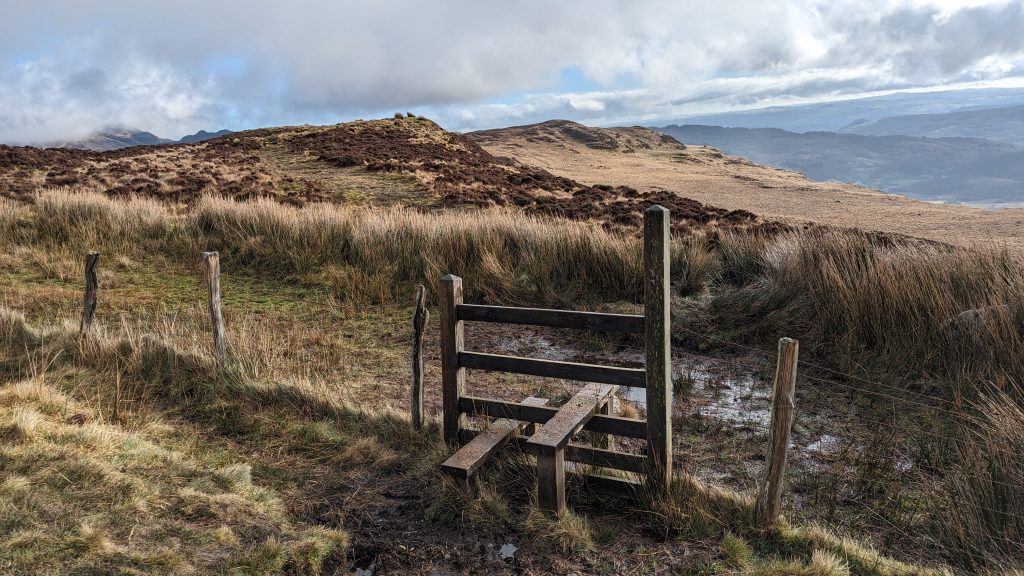
What Hiking Equipment do I really need?
As a novice hiker, you needn’t invest heavily in new hiking gear, but there are certain essentials you should carry to ensure comfort and safety. When walking through high hills or mountains, preparation is key. The list of hiking essentials provided assumes that you are not venturing into adverse and freezing weather conditions, which is not advisable for beginners.
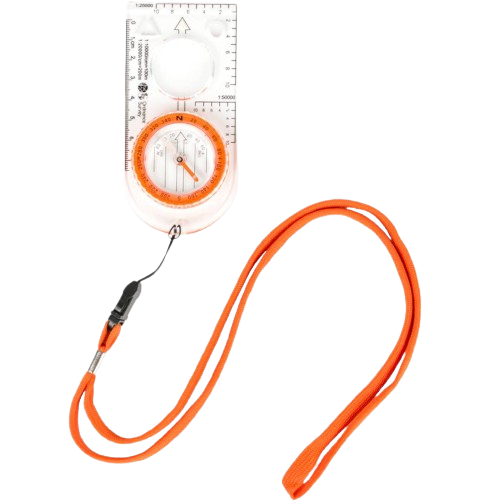
EXPLORE THE
OS Shop
We are with you every step of the way. Shop our trusted walking and hiking kit so you can explore the outdoors with confidence.
Go to the shopHiking Essentials for Beginners Checklist
1. Comfortable Rucksack/backpack
You’ll definitely need a hiking backpack if you’re planning a walk longer than an hour. For your first hike, why not ask friends and family if they have a back pack you could borrow before investing in something you might find you don’t use again. For day hiking you won’t need anything too big – explore our range of lightweight backpacks for day hikes.
2. Paper map of the area you are hiking
You should make sure you have a printed map of the area, and you know how to use it. Browse our range of Explorer Maps for Hikers in the UK
3. A Compass
However, there’s not much point taking a compass if you don’t know how to use it! Basic navigation skills are an essential. Read our Guide to Buying a Compass
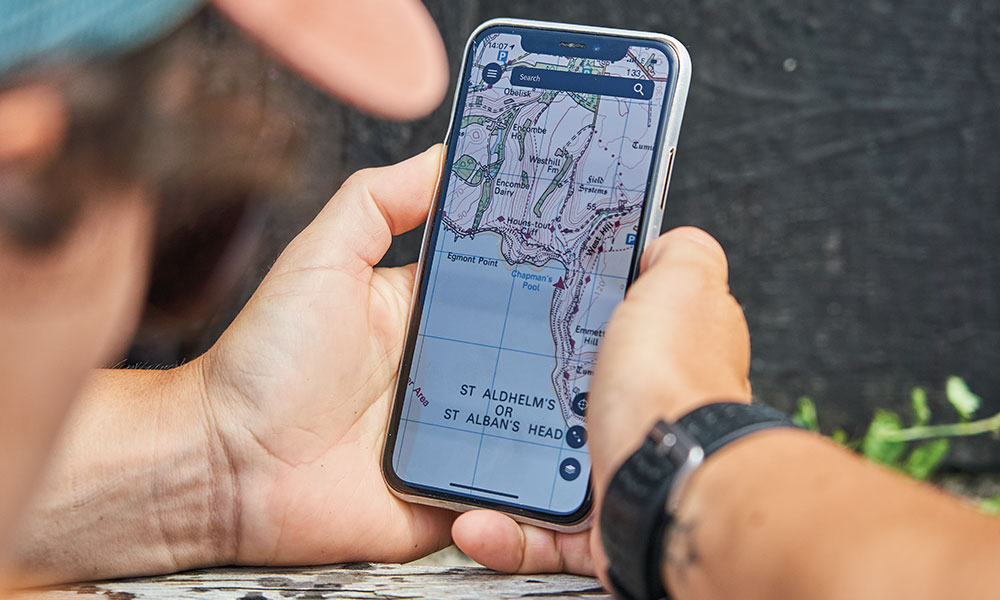
4. Smartphone & Mapping App
Ensure that your smartphone is fully charged and that you have OS Maps downloaded. Additionally, download the route to be able to access it and locate your position using your phone’s built-in GPS, even when you’re out of signal range. Download OS Maps
5. Power Bank
They’re not very expensive, mostly lightweight and are essential if your phone runs out of battery unexpectedly. Make sure it’s fully charged the day before you leave so you have lots of time to charge it.
6. Food / Snacks
Enough for the time you are hiking and a little extra just in case. Packing a few energy packed snacks will help if you or a member of your group starts flagging.
7. Water
Check the timing of the walk and bring plenty of water, especially if it’s a hot day. Bladder packs are really useful for helping to distribute the weight of the water.
8. Appropriate Footwear & Socks
Choosing the right footwear is crucial depending on your destination. For hiking, your footwear should be comfortable, provide a good grip for different terrains, and be water-resistant to handle puddles, mud, or rain. Boots offer more support on hilly terrain and better protection against the elements, whereas shoes are cooler in warm weather and lighter. It’s important not to hike in brand-new shoes or boots; instead, break them in gradually over several weeks to avoid unexpected blisters. Read more about choosing hiking socks and also our post on how to avoid blisters when hiking.
9. Waterproof Coat
Even if the forecast is clear it’s essential to bring a waterproof just in case. You need to be prepared for sudden unexpected changes in weather. Read our full wet weather hiking gear guide.
10. Weather Appropriate Clothing Layers
Temperature & wind changes as you get higher can make it feel suddenly very cold. Wear layers and bring a warm top layer just in case. Read our full guide to layering for beginners.
11. Hat & Gloves
It can get bitter on top of a hill or mountain, even if it feels lovely and warm at the bottom. Bring a warm hat and gloves just in case.
12. Sun Hat and Sunscreen
There may not be any shade if you are hiking up a hill or mountain so be prepared with decent sunscreen and a hat with a brim to protect your face and neck.
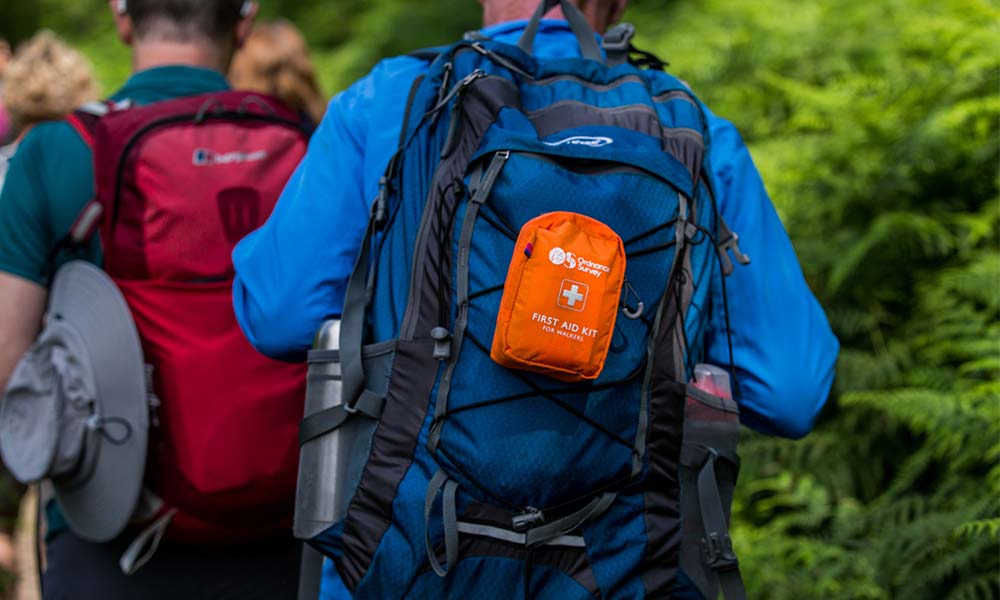
13. First Aid Kit
Always carry a first aid kit and make sure you restock it before each trip.
There are a few other items that aren’t always essential but that you may find useful when hiking for more than a few hours or at different times of year.
- Wet wipes & something to put them in after use like a dog bag
- A Sit Mat (little piece of foam so you don’t get chilly or damp if you sit down)
- Bladder pack for easy hydration and spreading the weight of water
- Map Case for keep your map to hand and dry
- Insect Repellent for hiking
- Walking poles – we have a useful guide for why hiking poles are so useful.
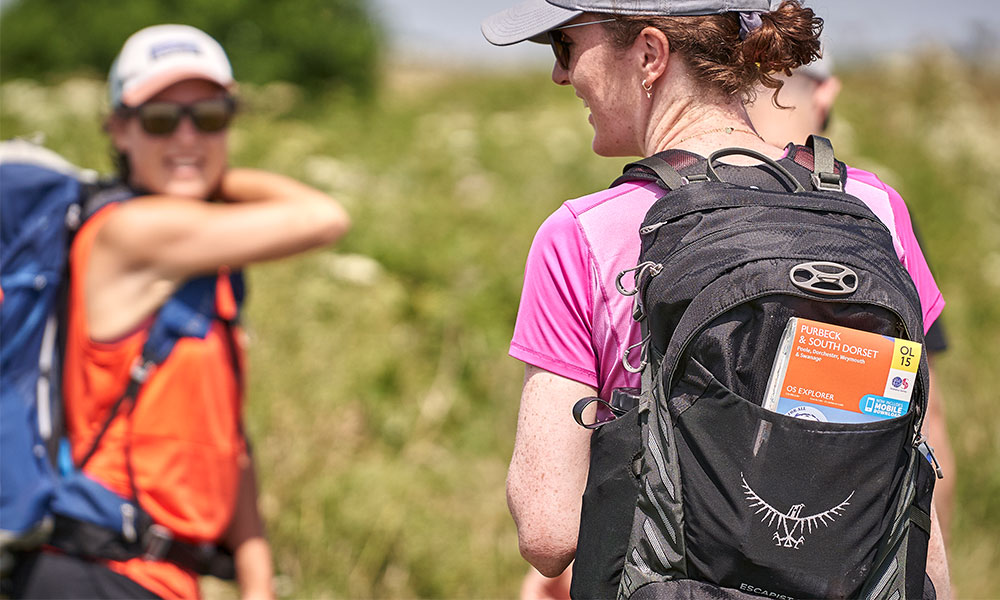
How do I get the most accurate weather forecast for hiking in the uk?
The weather can make a huge difference to your day out hiking, especially if you’re up high in the mountains. Being prepared for the weather makes an even bigger difference. On the OS Maps website you will see that each route has information about the weather. OS Maps doesn’t show the weather in detail, just an indication of what you can expect to help you pick the best day for your adventure.
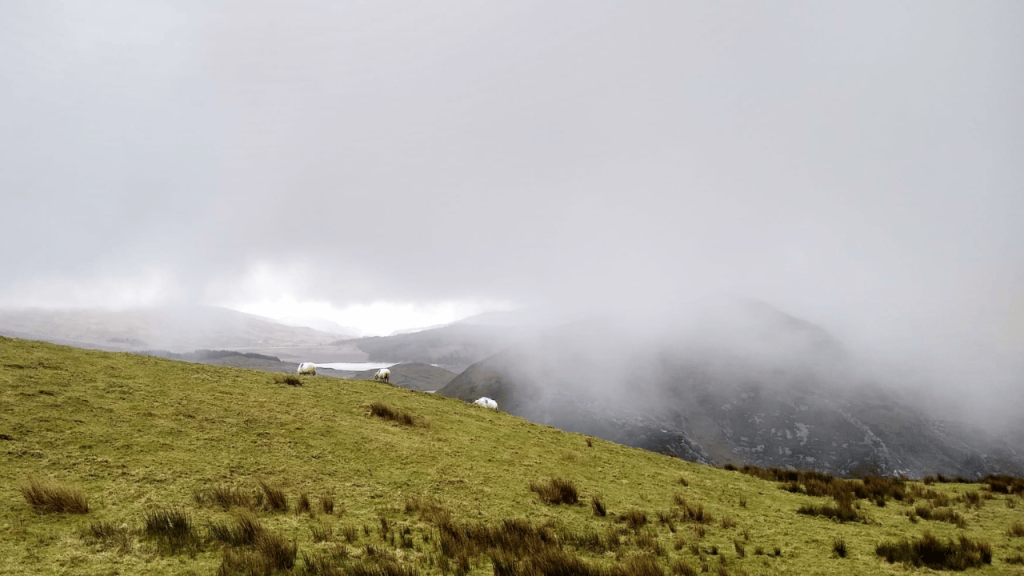
You can download more detailed weather apps if you are walking in the mountains. These weather apps can help you ensure you will get lovely views (and great pics to share!) rather than be stuck in low cloud for most of the day. Here are a few of the apps that hikers use.
How do I stay safe when hiking?
Here’s a simple checklist for staying safe when hiking.
Weather
Check the weather using a few different sources and choose a clear day until you have more experience with navigating. As a hiking beginner practice in clear conditions with no risk of ice first.
Livestock
Respect livestock and keep an eye for signs and pay particular notice when paths cross cattle fields as they can become aggressive if protecting their calves, especially if you have a dog with you.
Road Walking
Take care on narrow country roads without pavements and walk facing oncoming traffic.
Hills & Slopes
Risk of slips and falls is much greater, so make sure you have appropriate footwear for the route and the conditions.
Battery Drain
Make sure your phone is charged and reliable, carry two for piece of mind. One for pictures and the route guide and one just for emergencies.
Best UK Hikes for Beginners
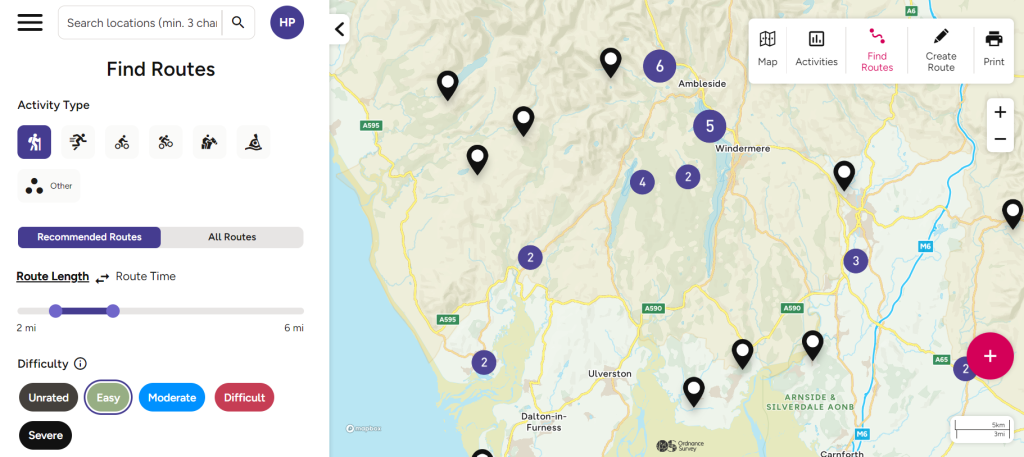
We’ve selected some of the best UK hikes for beginners. These are short, manageable walks. Use OS Maps to sort hiking paths by duration and difficulty level. Don’t forget to tag us with #ordnancesurvey when you post photos of your hiking journeys!
THE BEST UK Hikes For Beginners
Select your location below and then toggle the OS Maps ‘Find Routes’ settings to look for recomended easy routes for your first hiking adventure.


By Hilary Pullen
Hilary is the Content Editor for Get Outside. She is a based in North Wales and loves hiking in the mountains of Eryri and Bryniau Clwyd, you can find her on Instagram @nearlyuphill
